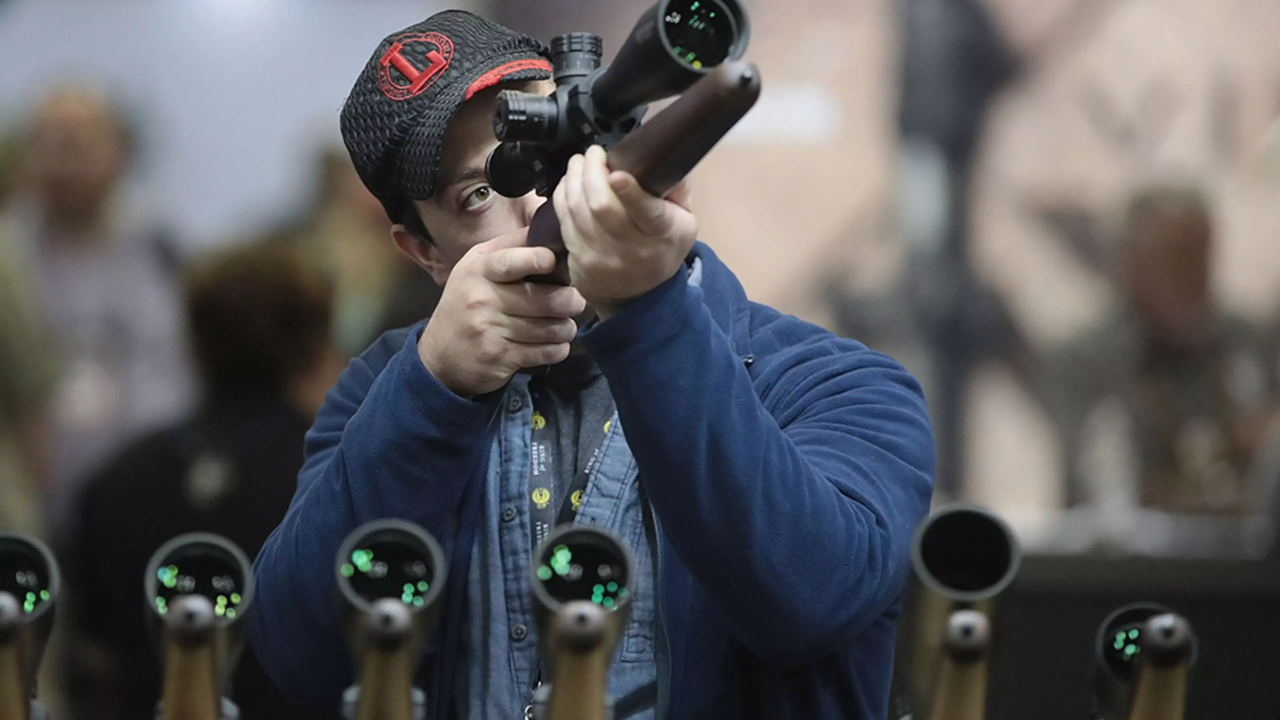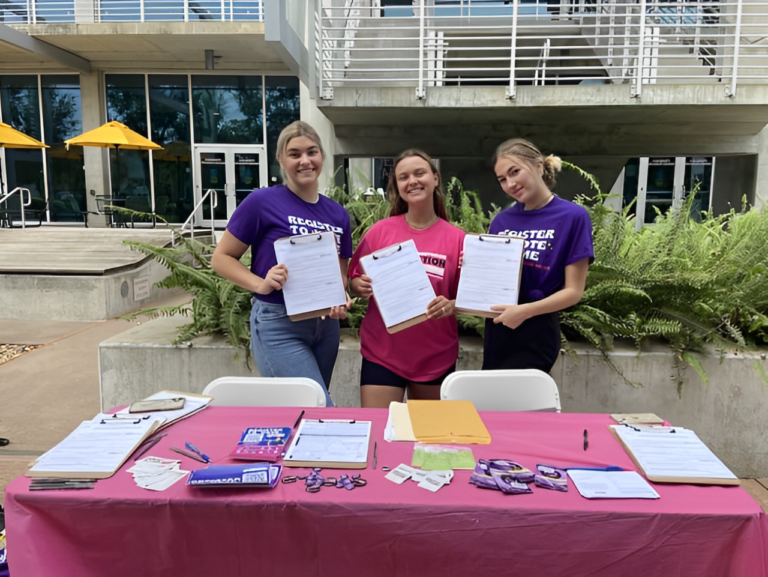Karen Keene’s life was irrevocably altered when her brother, suffering from untreated mental health issues, broke into her home and opened fire. The horrific incident resulted in the death of her husband, Steve, and left Keene with severe injuries. This tragic event is a stark example of the growing issue of gun violence in Central Florida and its devastating consequences on individuals and communities.
Keene recounted the harrowing details of the attack, describing how her brother, armed with a shotgun, blasted through the front door of her Maitland home. As she tried to shield herself, bullets pierced through the bathroom door, inflicting critical injuries. “I knew I was being shot in my stomach because I was holding my stomach and I remember that I was also shot in the leg,” Keene recalled, her voice trembling with the weight of the memory. She fell into a coma for nine days and awoke to a world transformed by the COVID-19 pandemic, only to learn about the death of her husband and the identity of her attacker.
The impact of this personal tragedy extends into a broader narrative of gun violence in Central Florida. Data analyzed by 9-Investigates from the Florida Agency for Healthcare Administration reveals the extent of this crisis. Between 2019 and 2023, nearly 25,000 gunshot victims were treated in Florida hospitals, averaging about 4,000 cases per year.
Dr. Michael Cheatham, Assistant Vice President and Chief Surgical Officer at Orlando Health, noted a significant shift in the nature and frequency of these injuries. “We’re certainly seeing more gunshot wounds than we used to in years past and the pattern of gunshot wounds has changed,” he said. The wounds are increasingly inflicted by high-velocity rounds from firearms such as AR-15s and AK-47s, causing far more severe injuries than those from lower-caliber weapons.
Emergency responders and medical professionals are on the front lines of this epidemic. Dr. Cheatham described the toll it takes on healthcare providers. “I would say it’s not a weekly basis, it’s a daily basis. It’s not uncommon sometimes for us to see half a dozen gunshot wounds a day,” he explained. Despite the frequency of these incidents, the human cost remains deeply felt. “You still realize it’s a human being. You realize it’s someone’s father, mother, son, daughter. I don’t think you ever become desensitized,” he added.
The long-term care required for gunshot survivors is substantial. More than 18,000 patients were admitted for extended treatment, with some cases spanning years of repeated surgeries and ongoing medical support. Dr. Cheatham shared the story of one patient he has operated on 26 times over 15 years, highlighting the lifelong impact a single bullet can have. “That bullet hits the victim, changes their life forever,” he said.

The medical community also faces significant emotional and psychological burdens. Dr. Mary Senne, a psychologist at Orlando Health, addressed the trauma experienced by healthcare providers who regularly confront the aftermath of gun violence. “Our physicians and nurses are impacted by trauma and if left unabated can have long-lasting impacts,” she said. The hospital has implemented peer support groups and one-on-one counseling to help staff cope with the emotional strain.
Keene’s brother, who had a history of mental health issues, had amassed an arsenal of weapons, often purchased online without adequate background checks. This highlights a critical gap in gun regulation. The Department of Justice recently approved a new rule requiring more gun sellers to be licensed and conduct background checks, aiming to curb the sale of firearms to individuals who should not have access to them.
Dr. Cheatham emphasized the need for stricter gun laws to prevent senseless violence. “We talk about desensitization, I think even the public has become desensitized to the fact that you’re reporting about, yet another gunshot wound, another crime where someone was shot,” he said. He noted that trauma surgeons worldwide view the U.S. gun violence epidemic with incredulity, underscoring the urgent need for regulatory reform.
Despite surviving the shooting, Keene’s life has been permanently altered. She spent three months in the hospital initially and has endured numerous complications since. “I was not able to walk at all. The shotgun created an evisceration to my small intestine, so my small intestine was protruding from my abdomen,” she recounted. A year after the shooting, she suffered cardiac issues and had a defibrillator implanted. Her story is a poignant reminder of the pervasive and unpredictable nature of gun violence.
Keene’s experience underscores the far-reaching impact of gun violence, affecting not only the victims but also their families, communities, and the medical professionals dedicated to saving their lives. Her call for stricter gun regulations echoes the sentiments of many in the medical field who witness the devastating consequences of gun violence daily. “There is something that could be done.
Read More: A 27-Year-Old Man Is Charged of Taking a Picture of A Child at A Target Store in Central Florida!
Breaking News: Pineapple Sold for $395 at Store in Southern California!
We have a constitution, and we have laws that enable us citizens to own guns and I fully respect that, but I think there’s something that we need to do to tighten up the laws that govern our country to try to decrease the number of senseless gunshot wounds that occur,” Dr. Cheatham urged. Karen Keene’s story is a powerful testament to the urgent need for change, serving as a stark reminder that gun violence can strike anywhere, affecting everyone.







+ There are no comments
Add yours